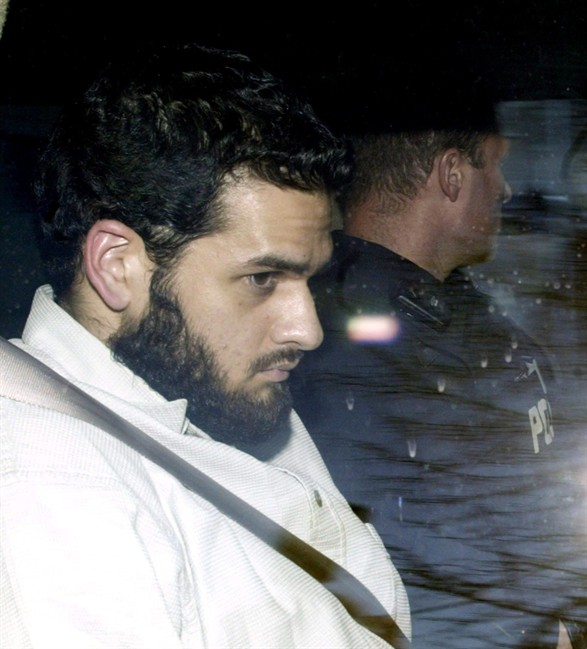The first Canadian convicted under anti-terrorism laws enacted after the 9/11 attacks has lost his bid for release after the Parole Board ruled he wasn’t ready to leave prison.

The decision followed a hearing at which Mohammad Momin Khawaja struggled to explain how he had reformed since he was arrested when police disrupted a 2004 bomb plot.
He also appeared to downplay his actions, claiming he thought at the time that he was supporting a “good cause,” and was simply responding to “social injustice” and “suffering.”
“It is the Board’s opinion that you will present an undue risk to society if released, and that your release will not contribute to the protection of society,” read the decision released Wednesday.
Khawaja, 42, is serving a life sentence for five terrorism offences stemming from his involvement with Al Qaeda supporters who were planning bomb attacks in the United Kingdom.
He has been imprisoned for 18 years.
At a hearing on Feb. 3, the Correctional Service of Canada said it opposed his application for day parole, saying he “would present an undue risk if released at this time.”
But Khawaja argued he should be allowed to move into an Ottawa halfway house, and said he wanted to study law and volunteer for humanitarian organizations that help refugees.

Get breaking National news
“I’m interested in helping human beings,” he said.
He said that while he had “violent distorted ideas” for a period in his early 20s, he had taken “lengthy steps” and would abide by any conditions imposed of him if he was granted day parole.

The Parole Board of Canada said he avoided answering direct questions, and had tried to “dispute facts” already determined by the courts.
“You utilized your hearing to minimize your involvement in the criminal activity for which you are convicted,” the Board wrote in its ruling.
“You also focused on the fact that no one was actually harmed as a result of your actions. Further, you maintained that your intention was only to help people.”
He was also “linked to, and are supportive of a website that characterizes you as a political prisoner who is wrongfully convicted,” it said.
Khawaja was born in Canada and lived in Libya, Pakistan and Saudi Arabia before returning to Ottawa, where he worked for a company contracted by the Department of Foreign Affairs.
In 2002, he travelled to Pakistan for weapons training and “provided financial support and technical training, and transported supplies for the group,” according to the Ontario Court of Appeal.
He wrote in emails at the time that Osama bin Laden was “the most beloved person to me” and that he wanted to “contribute as best as possible to the destruction of the enemies of Allah.”
“Between 2002–2004, you became involved with an extremist Islamist terrorist group, whose objectives were to carry out a plot to set explosions off in London, as well as other British targets in 2004,” the board’s decision read.
“Part of a broader Islamic Jihad against the West, you designed a remote arming device for explosives, referred to as ‘hifidigimonster,’ and further agreed to make 30 of these devices.”
“You offered to smuggle them into the United Kingdom and train members on their use. You received weapons training, financially supported the group’s activities both directly and indirectly, and provided the group with a residence in Pakistan to support their efforts.”









Comments
Comments closed.
Due to the sensitive and/or legal subject matter of some of the content on globalnews.ca, we reserve the ability to disable comments from time to time.
Please see our Commenting Policy for more.